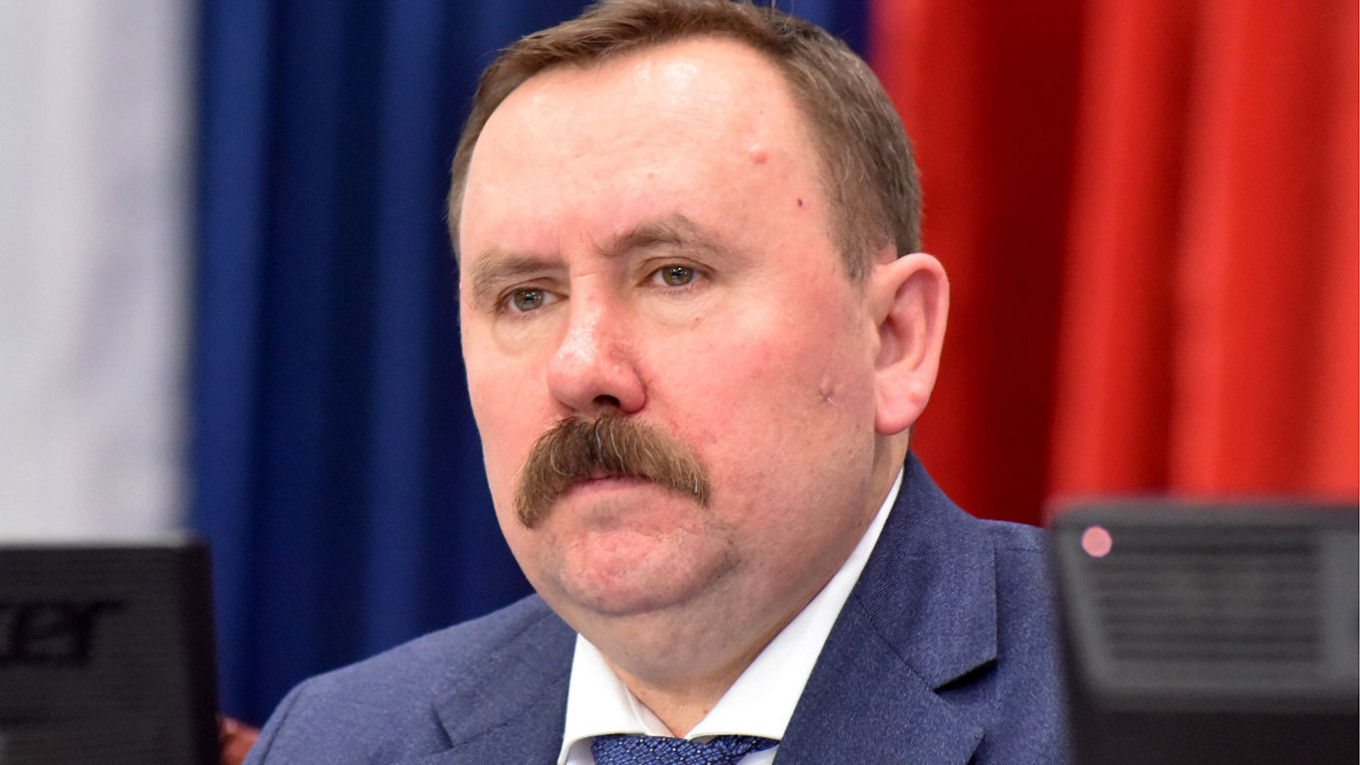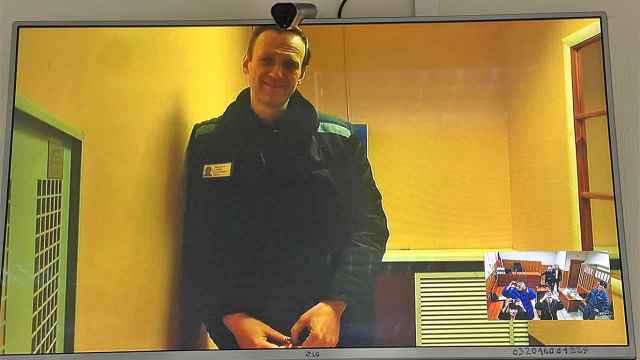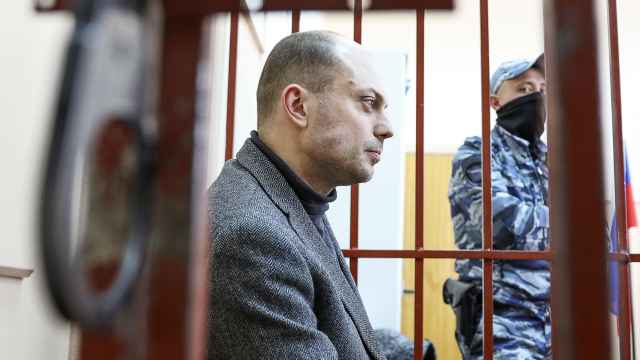President Vladimir Putin has fired the head of Russia’s prison system, the Kremlin announced Thursday, a month after a series of explosive videos showing rape and torture inside a prison hospital leaked online.
Putin replaced Alexander Kalashnikov with Deputy Interior Minister Arkady Gostev as head of Russia’s Federal Prison Service (FSIN), with the change effective immediately.
The high-profile sacking of Kalashnikov follows the firing of 18 prison officers in October in the central city of Saratov where the alleged rape and torture took place. Three regional prison officials were also fired.
Gulagu.net, a prominent prisoners’ rights NGO which published the series of harrowing videos from the Saratov prison hospital, welcomed Kalashnikov’s exit.
“A series of new criminal cases and arrests of colonels and generals is ahead. The sadists will be jailed for a long time,” Gulagu.net said on Telegram.
“That’s what we work for,” the NGO said, voicing hopes that “those who took part in sodomy and terrible torture will be [publicly] convicted.”
Russia’s police, meanwhile, added Gulagu.net founder Vladimir Osechkin to its wanted list earlier in November for an unspecified crime.
In October, Russian prosecutors pursued criminal charges against Sergei Savelyev, the whistleblower who shared the trove of more than 1,000 files allegedly showing prison rape and torture to Gulagu.net. The charges against him were later dropped.
Savelyev, a Belarusian citizen, obtained a trove of more than 1,000 files while serving jail time in Saratov.
Savelyev smuggled the videos on a USB stick after being released in February. He arrived in France — where Osechkin has lived since 2015 — last month to seek political asylum.
Monitors say torture and sexual violence against inmates have long been systemic problems within Russia's vast prison system, but the latest videos have shed new light on abuses.
A Message from The Moscow Times:
Dear readers,
We are facing unprecedented challenges. Russia's Prosecutor General's Office has designated The Moscow Times as an "undesirable" organization, criminalizing our work and putting our staff at risk of prosecution. This follows our earlier unjust labeling as a "foreign agent."
These actions are direct attempts to silence independent journalism in Russia. The authorities claim our work "discredits the decisions of the Russian leadership." We see things differently: we strive to provide accurate, unbiased reporting on Russia.
We, the journalists of The Moscow Times, refuse to be silenced. But to continue our work, we need your help.
Your support, no matter how small, makes a world of difference. If you can, please support us monthly starting from just $2. It's quick to set up, and every contribution makes a significant impact.
By supporting The Moscow Times, you're defending open, independent journalism in the face of repression. Thank you for standing with us.
Remind me later.






